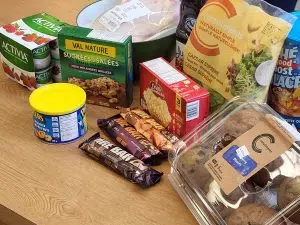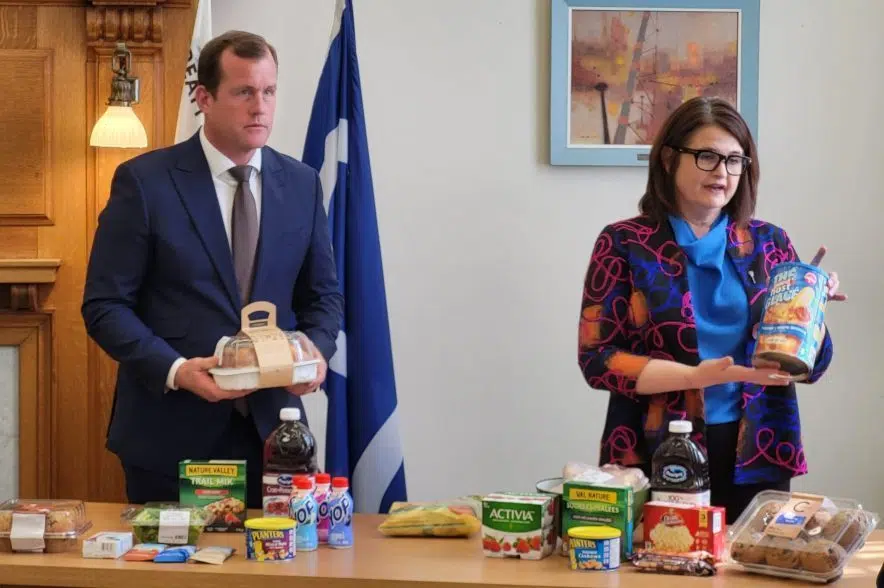As many people across the province continue to deal with inflation, the Saskatchewan NDP is calling on the provincial government to get rid of what it calls the “snack tax.”
In 2017, the Saskatchewan Party introduced six per cent PST on restaurant meals, but that also included prepared foods sold at grocery stores (like rotisserie chicken), carbonated beverages and single-serving beverages.
“The rules around what types of food are and aren’t subjected to the Sask. Party’s so-called ‘snack tax’ are about as clear as mud,” NDP Finance Critic Trent Wotherspoon said during a media event Tuesday.
“Rotisserie chickens, they’re taxable, but a raw chicken is not. Mixed or salted nuts? They’re taxed, but non-mixed nuts are not.”

Grocery items brought to a media event hosted by the Saskatchewan NDP on May 9, 2023. (Daniel Reech/980 CJME)
Wotherspoon talked about other facets of the tax he felt were arbitrary or contradictory, such as taxing things like yogurt products and pre-packaged salads while exempting iced tea mix and microwavable popcorn.
“Then there’s also the added confusion of size and quantity,” Wotherspoon said.
“Certain food items are classified as so-called ‘snack foods’ but only taxed when they’re packaged in smaller portions — something that we’re also seeing manufacturers doing. (That’s) something referred to as ‘shrinkflation.’ ”
Wotherspoon mentioned as an example that granola bars or muffins in packages of five are subject to the tax while those same food items in packages of six or more would be exempt.
“It makes no sense,” Wotherspoon said.
NDP Leader Carla Beck said ending the tax would be a huge relief to people struggling to get by.
“It’s convoluted,” Beck said. “It’s adding extra costs for people who are buying four months instead of six because they can’t afford six any longer or can’t afford to go to the drive-thru but are trying to provide a meal to their kids before they head on to soccer or football practice.”
During Tuesday’s Question Period, Finance Minister Donna Harpauer said the provincial government used the same definition as the federal government in terms of what gets qualified as snack food.
Harpauer said the tax was introduced to create a stable base of revenue to pay for health care, education and social safety nets.
“The vast majority of groceries are not subjected to PST, nor are they subjected to GST,” Harpauer said.











